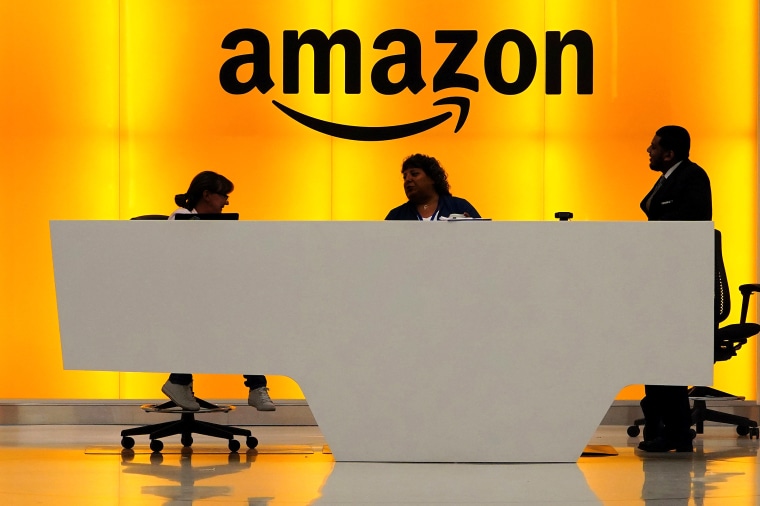Amazon has launched a virtual health clinic with in-home follow-ups for employees in Seattle, dubbed Amazon Care.
The company announced the program on a web site, Amazon.care, that is currently publicly accessible, but did not formally announce the news outside the company.
“Amazon Care is a benefit being piloted for Amazon employees and their families in the Seattle area,” the website reads.
CNBC previously reported that Amazon was working on an employee health clinic for its Seattle-based employees. Those discussions kicked off last summer with a few hires, including a top Seattle doctor who ran a network of health clinics.
The clinic offers a combination of telemedicine and in-person services.
Its virtual offering includes an “in-app video visit with a doctor, nurse practitioner, or registered nurse for advice, answers, answers, diagnosis, treatment or referrals,” according to the web site. Employees will have an option to see a health provider via a mobile app or website, and they can text a nurse on any health topic in minutes. If an employee needs follow-up care, Amazon Care can arrange for a nurse to pay a visit at home.
Amazon will also prescribe medications via Amazon Care within a few hours, or offer a way for employees to pick them up at a preferred pharmacy.
A company spokesperson confirmed:
“We’re currently piloting a healthcare benefit designed to help Amazon employees get fast access to healthcare without an appointment, at the convenience of their schedules, at their preferred location (home, office, or virtual). Amazon Care eliminates travel and wait time, connecting employees and their family members to a physician or nurse practitioner through live chat or video, with the option for in-person follow up services from a registered nurse ranging from immunizations to instant strep throat detection.”
The company appears to have contracted with a provider called Oasis Medical, which could help ensure that Amazon will not have knowledge of employees’ health conditions. Oasis is a separate legal subsidiary from Amazon, the parent company.
Health care represents a $3.5 trillion sector for Amazon, which is looking at ways to bring in technology ranging from cloud computing to medical record technology.
The company in 2018 joined up with J.P. Morgan and Berkshire Hathaway for an effort, later called Haven, to explore how to move the needle on health care expenses, without compromising quality, for their combined 1.2 million employees.
It has a pharmacy group under PillPack, a company it acquired in mid-2018, and a research and development group sometimes referred to as Grand Challenge or 1492. CNBC reported earlier this week that the company is working on wireless earbuds with some health and fitness-tracking features, representing its first foray into the wearables space, and could introduce them as early as Wednesday.
Amazon isn’t the only technology giant to launch its own health clinics for employees, rather than contract with a third-party like One Medical or Crossover Health.
Apple has its own clinics, AC Wellness, which are based near its headquarters.
But Amazon seems to have made the deepest move into telemedicine, which represents a $130 billion market opportunity if the company expands its clinic beyond a pilot for its own employees.
For tech companies, starting a clinic represents a way to test new health care products in an internal research and development lab. Some experts have suggested that it’s also a way to control health care costs, as well as to open up new market opportunities in areas like population health management and health technology. Amazon has experimented with new products on its employees first, before it broadens them out the general population.
“Amazon is a company that is experimenting a lot with a variety of opportunities in health care,” said Glen Tullman, the executive chairman of Livongo, a health care company specializing in treating diabetes, which works as a partner to Amazon. “It’s one to watch.”
